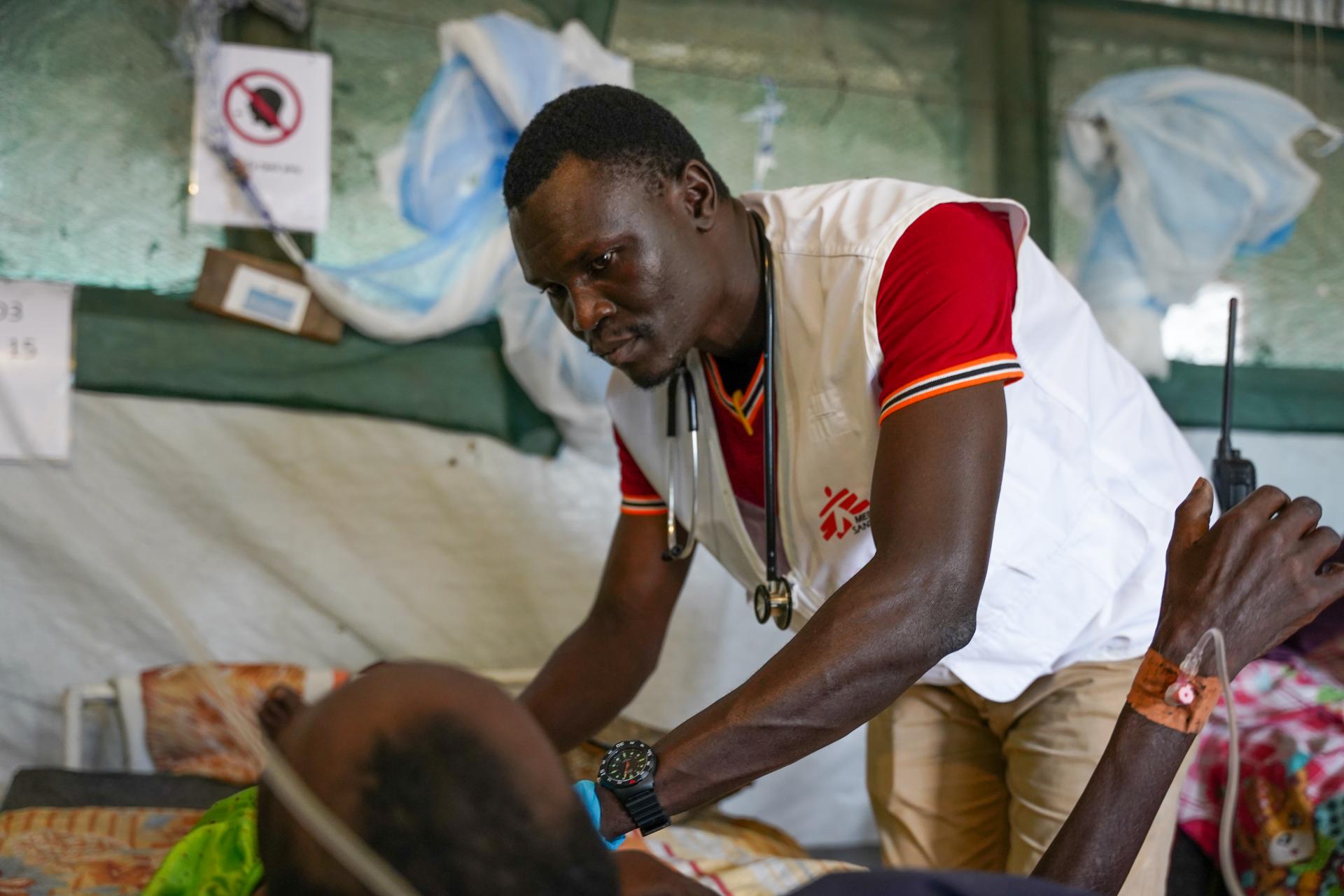When it comes to treating HIV, access to medicines is crucial, but only one part of the picture, writes Dr Isaac Batali…
The first time I saw Abdo*, he was so weak he was unable to walk. There are very few roads or cars in the area around Lankien, a remote town in South Sudan, so his family had to carry him, travelling on foot for three days to reach our hospital.
In Lankien we see a lot of patients with HIV. There is a common belief in this area that the virus is only found amongst city dwellers, so people here often find it very hard to accept that they may have it, or that they could pass it on. People who do test positive for HIV also face a lot of stigma. These factors contribute to the spread of the virus and prevent people from accessing treatment.
Abdo had previously been diagnosed with HIV in a different health facility. However, he hadn’t received the right support and had struggled to accept the diagnosis. As a result, he had not stuck to his medical treatment. Now he was extremely sick, his muscles wasted away. We were not sure that he would recover.
We started him on medical treatment right away, but he needed more than that. The nutrition team and the mental health team got involved too. Over the course of a month, we helped him slowly, with patience, good nutrition and counselling.
People with HIV who stick strictly to their medication regime can live long and healthy lives. But without the medication, their immune systems weaken and they are unable to fight off infections. This is why counselling is such an important part of the help that MSF provides, especially within the Lankien community.
If we diagnose both a man and a woman with HIV, we’ve found that it’s often more likely that the woman’s condition will improve. This is because generally women accept their diagnosis more readily and stick to their treatment. So, we talk to the men at every opportunity. We do see real changes in their attitude, but to get to that point we have to be patient.
A few weeks after Abdo arrived at the hospital, I went on leave for a month to see my family. On the afternoon I returned, I went to the outpatient HIV clinic. A man I didn’t recognise was calling my name. When I greeted him, his face broke into a big smile.
At that moment I knew it was Abdo.
“You really are different now!” I said. He had gained weight and his skin was back to its normal colour. It was great to see him looking so much better.
As a team, we often find that when HIV patients come to us extremely sick, that can be our opportunity to change their perspective and beliefs about the virus. As their bodies respond to the treatment, they start to trust us. They listen to our advice and they get better.
Abdo was willing to listen to whatever the team advised him, and he adhered to his treatment. Gradually he built up his strength until he was well enough to leave the hospital and stay with relatives nearby. It would take a while longer before he was able to do the three-day walk back to his hometown.
I look at this community where people face so many challenges – conflicts, poverty, disease outbreaks. MSF ensures that at least they have access to healthcare and can receive treatment for chronic illnesses and medical care in emergencies.
But to have a lasting impact with conditions like HIV we can’t focus only on physically treating the illness. For patients like Abdo, counselling is just as lifesaving: it ensures that they understand the diagnosis and the treatment, and that their families understand the support they need. Our goal with this holistic approach is to empower people living with HIV to look after their health long after they have been discharged from hospital.
*Name has been changed
